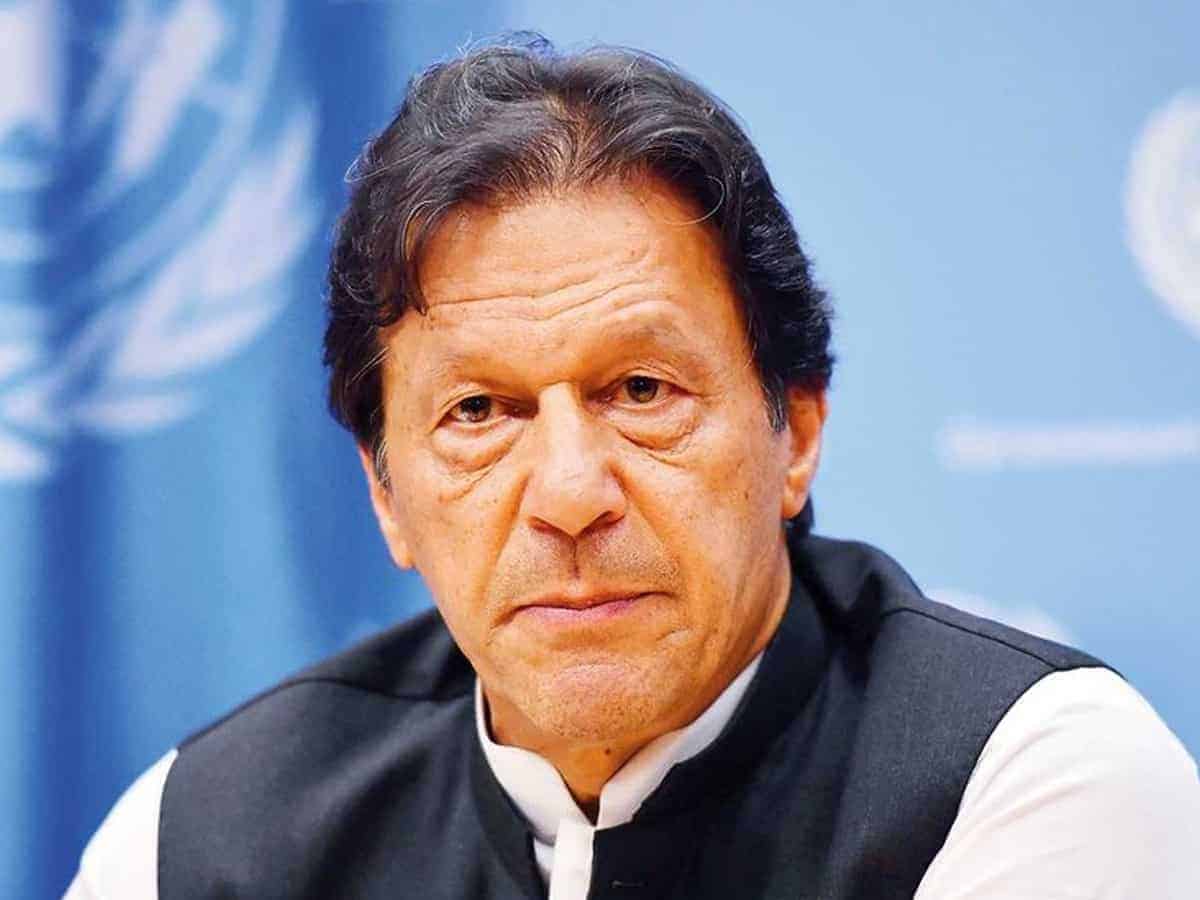
Islamabad: A district court judge in Pakistan on Thursday dismissed former prime minister Imran Khan’s plea to suspend non-bailable arrest warrants against him in the Toshakhana case.
Additional District and Sessions Judge Zafar Iqbal on February 28 issued non-bailable arrest orders against 70-year-old Khan in the Toshakhana case about the concealment of the proceeds from the sale of state gifts. The judge directed the capital city police to bring him to court by March 18.
Khan has been in the crosshairs for buying gifts, including an expensive Graff wristwatch he had received as the premier at a discounted price from the state depository called Toshakhana and selling them for profit.
He was disqualified by the Election Commission of Pakistan in October last year for not sharing details of the sales. The election body later filed a complaint with the district court to punish him under criminal laws for selling the gifts he had received as prime minister of the country.
Announcing the judgment, Judge Iqbal Thursday said the warrants could not be suspended on the basis of an undertaking that Khan would appear on a certain date.
He ordered the police to arrest Khan and present him on March 18 as per law.
“Law is the same for everyone,” the judge wrote in his judgment after three back-to-back hearings.
In another case, District and Sessions Judge Faizan Haider Gilani suspended arrest warrants against Khan in the case about threatening a female judge until March 20.
Khan, while addressing a public rally, had threatened judge Zeba Chaudhry, resulting in a case against him.
Senior Civil Judge Rana Mujahid Rahim on March 13 issued arrest warrants when Khan failed to appear before the court. He had also fixed March 29 as the new date of hearing of the case. But Khan challenged the arrest orders in the same court and got relief when the court rescheduled hearing for March 20, suspended arrest warrants and asked Khan to appear before it.
Separately, the Lahore High Court ordered police to suspend its operation to arrest Khan from Lahore until Friday. The same court on Wednesday had suspended the police operation until Thursday morning.
Earlier, during the morning hearing of the Toshakhana case, the judge said he would halt attempts by the Islamabad police to arrest Khan if the ousted premier surrendered before the court.
He asked the premier to surrender unconditionally before seeking any favour from the court.
Khan’s counsel also presented the undertaking as per directions of the Islamabad High Court that his client would appear in the court on March 18. The judge remarked that what is the meaning of the undertaking if the former premier was not present?
“We want Imran to come to court. Why is he not coming? What is the reason? Imran Khan has to assist the police according to the law, not resist them,” the judge said.
Khawaja Haris, Khan’s lawyer, clarified that he wanted to give an undertaking to appear in court on March 18.
Judge Iqbal remarked that the arrest warrant had become the most expensive warrant in the world and millions of rupees have been spent to execute it. “What happened shouldn’t have taken place,” the judge said.
The judge stated that he would prevent the Islamabad police from arresting Khan if he surrendered in court.
“Legally, Imran should have been directly brought to court it wouldn’t have been possible to harass him during the court appearance,” he said.
He also said there was no need for police to sit outside Khan’s residence if he had appeared before the court and also said that being a poor country, Pakistan cannot afford to waste its resources on such matters.
He said if Khan had appeared before the court, the arrest warrants would have been cancelled.
Khan’s lawyers requested that the non-bailable arrest warrants for him be forthwith cancelled.
The judge issued notices to the secretariat police and ECP and summoned them to court and adjourned till 12. When he reconvened the court, he heard the pleas by the lawyers of both sides and concluded the case and once again adjourned till 2.30pm.
After the third hearing, the judge reserved the judgment.
Judge Iqbal had ordered Khan to appear before the court on March 7.
Khan managed to dodge the arrest and later approached the Islamabad High Court (IHC) for the cancellation of the warrants. The IHC suspended the warrants on the commitment by Khan that he would appear on March 13.
However, he failed to appear and the District and Sessions Court restored his non-bailable arrest warrant. As police laid siege to his Lahore residence, Khan once again rushed to the IHC with a petition against the arrest orders.
The IHC refused to intervene and asked the lawyer to go to the district court and give a commitment that Khan would appear on March 18 when the court had scheduled a hearing of the case.
Khan has been facing a slew of cases since his ouster in April last year through a no trust vote. He claims that he has been facing about 80 cases.



